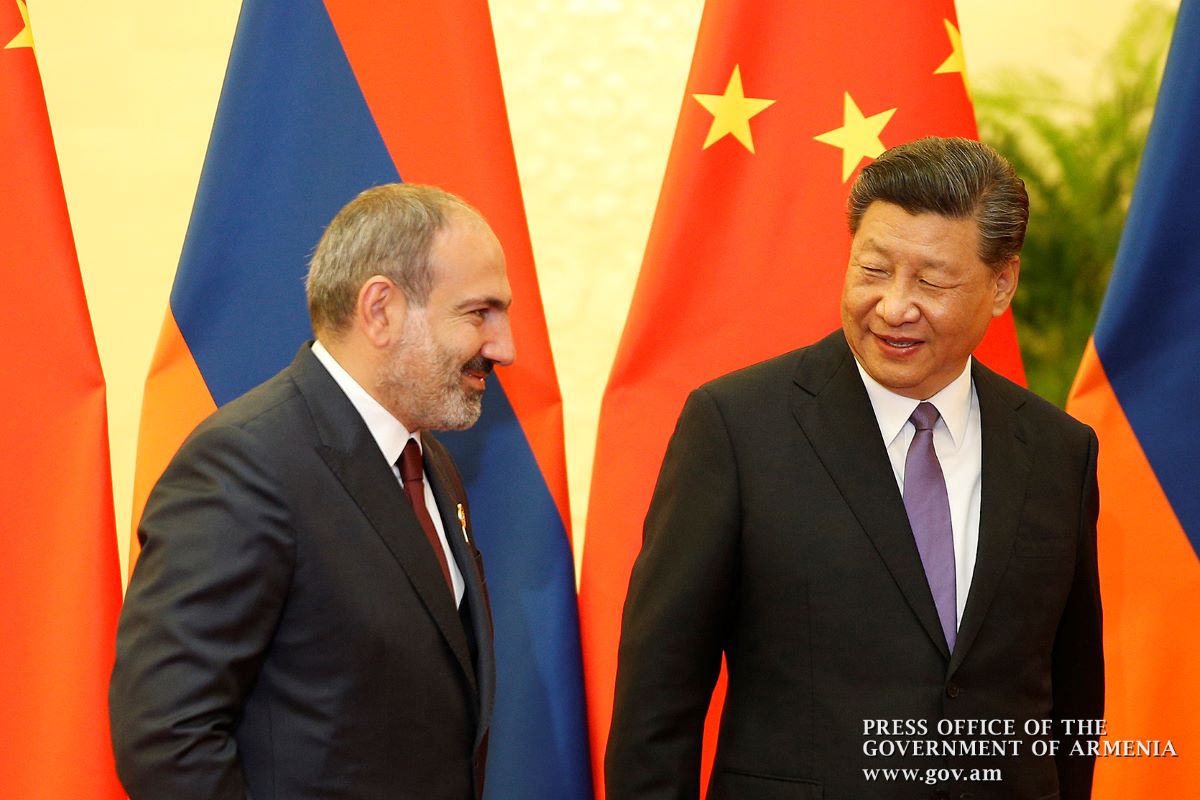Opinion: Will Armenia join China’s transit programmes
Armenia and China’s transit programmes
China’s interest in the South Caucasus is purely economic and fits entirely within the logic of Beijing’s transit projects, political analyst Benyamin Poghosyan believes. However, he does not expect Armenia to take part in them until relations with Baku and Ankara are fully normalised.
“If the Armenia-Azerbaijan and Armenia-Turkey borders remain closed, it is obvious that Armenia cannot become a route for China–South Caucasus, China–Central Asia, Caspian Sea–Europe transit corridors. But for the South Caucasus as a whole to become part of major transit projects, stability in the region is essential,” he stressed.
- Armenia’s mining industry: reasons behind its recent highs and lows
- Economy minister: ‘Armenia won’t swap EAEU for another bloc, it seeks independence’
- Regional transportation routes: How Georgia’s transit role is changing in light of new realities
- Opinion: Can Chabahar port help Armenia overcome its lack of access to sea?
New Chinese ambassador to Armenia and bilateral relations
The day before, Armenian Deputy Foreign Minister Mnatsakan Safaryan received China’s new ambassador, Li Xingwei, and congratulated him on the start of his mission. Along with wishing him success in his work, Safaryan expressed Armenia’s readiness to fully support the strengthening of bilateral ties.
At the official level, both countries regularly reiterate their “commitment to intensifying political dialogue between Armenia and China.
Diplomatic relations between Armenia and China were established in 1992. That same year, the Chinese Embassy opened in Yerevan, along with a Chinese trade and economic office. Armenia’s embassy in Beijing opened later, in 1996.
According to Armenia’s Foreign Ministry website, the two countries have managed to establish friendly and mutually beneficial relations and have built a partnership. Special emphasis is placed on economic ties. Armenia mainly exports minerals to China, while imports from China are much more diverse:
“They include goods such as clothing, footwear, engineering and chemical products, equipment, construction materials, food products, and more.”
Comment by political analyst Benyamin Poghosyan
Yerevan-Beijing cooperation is not at strategic level
“In political terms, Armenia has the lowest level of relations with China in the South Caucasus,” says Poghosyan.
He notes that Beijing has signed strategic partnership agreements with Armenia’s neighbours, Azerbaijan and Georgia. At the same time, he suggests that signing a similar document now would hardly serve Yerevan’s interests:
“We are witnessing escalating tensions between China and the United States. In these conditions, it is hard to say whether signing a similar declaration with China would benefit Armenia. Most likely, this should have been pursued before Trump’s election. For now, it is wise to maintain the level of relations we currently have with China.”
Caucasus as an additional transit route for China
According to the analyst, China’s interest in the South Caucasus lies mainly in its potential as an additional transit route. Beijing seeks to establish another path to the European Union:
“I’m referring to the China–Central Asia–Caspian Sea–South Caucasus–Europe route. This path is known as the Middle Corridor. A route is already operating: China–Kazakhstan–Azerbaijan–Georgia, and then across the Black Sea to Europe. Another route is China–Kazakhstan, across the Caspian Sea to Azerbaijan, then via the Baku–Tbilisi–Kars railway through Turkey into Europe.”
Poghosyan believes it is no coincidence that China is interested in building the Georgian port of Anaklia. In 2024, Beijing and Tbilisi signed a preliminary memorandum, and a Chinese consortium won the tender:
“However, a final contract has not yet been signed. Therefore, it remains uncertain whether this company will actually build the port.”
Regional stability is beneficial for Beijing
The analyst stresses that a geopolitically unstable region cannot become an active transit route. Therefore, China has no interest in new military conflicts or destabilisation in the South Caucasus. Instability would negatively impact the region’s transit potential.
“That’s why we need to tell our Chinese partners that they should send a clear message to Azerbaijan — to refrain from large-scale military action against Armenia. Otherwise, it would lead to a protracted war, which in turn would destroy the South Caucasus’ transit potential.”
According to Poghosyan, China’s policy in the Caucasus is neither pro-Armenian nor pro-Azerbaijani. It simply “aligns with its economic interests.”
At the same time, he notes the growing contacts between Beijing and Baku. Last year, they signed a strategic partnership document, and this year, Azerbaijan’s president paid a state visit to China.
“China–Azerbaijan relations are deepening. And this means that China now has the channels to convey certain messages to the Azerbaijanis,” the political analyst says.





















